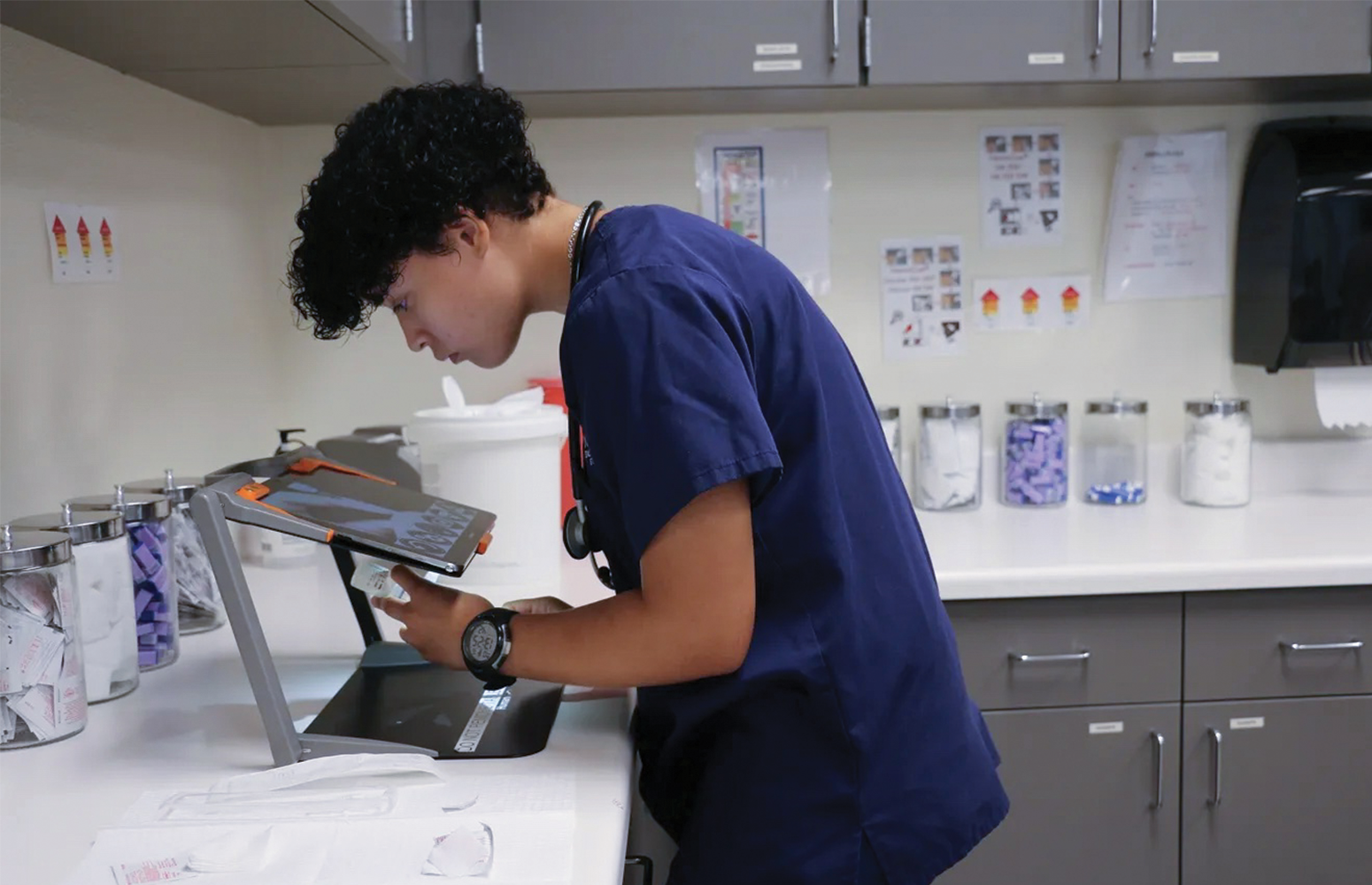Drawing Blood Her Own Way

As Margaret McClure fills a syringe with practiced ease, it is hard to imagine that she struggled in class initially. McClure has Stargardt macular degeneration, and the impairment has become her motivation to excel in all that she chooses to take on. Now, McClure is one of the top performers in the medical assisting program at West-MEC.
Stargardt disease is a rare eye condition where the center of the retina, known as the macula, is affected. The macula is responsible for sharp central vision, which is needed for things like reading, driving, and recognizing faces.
McClure joined the medical assisting program at West-MEC in the fall of 2020. She found difficulty as she navigated this new experience, especially with online learning during the pandemic. The textbook wasn’t accessible, and many assignments were visually demanding. McClure was facing so many challenges that she considered calling it quits.
But once the Exceptional Student Services (ESS) team at West-MEC was made aware of McClure’s disability, things started to head in the right direction for her.
“We called together her high school support, family, Maggie and our West-MEC team to learn how we could collaborate to assist her in best accessing all aspects of our program,” Director of ESS Shelly Thome said. “Maggie’s high school instructor, who is a vision specialist, aided us in developing adaptations that provided Maggie the same rigor and experiences as every student.”
Venipuncture, drawing blood from the veins, is an example of a challenge for McClure that she faced during her learning at West-MEC.
“It was tough because I couldn’t see the vein. So, I relied on my other senses and worked around the hurdle by palpitating the arm to find the vein,” said McClure.
Lysa Thank, McClure’s high school instructor and registered medical assistant, worked to help facilitate McClure’s learning in both virtual and physical environments.
“There were many times that I wanted to give up, but Ms. Thank told me to keep going and that we would find another solution to whatever problem was facing us,” said McClure.
When Thank felt McClure was ready, she asked McClure’s parents to be the first patients. After countless hours of hard work, McClure was confident and for her parents to be her first patients was something very special.
“Maggie practiced, and I knew she could do this. Her dad came in and Maggie drew blood successfully from her dad multiple times,” said Thank.
McClure, fully engaged in class and thriving in her second year at West-MEC, is a testimony to her resilience and the support received from her family, school and the community.
Now, she is flourishing in class, and is the vice president of the official student organization and plans community outreach programs like helping at St. Mary’s Food Bank and the New Dawn Sanctuary. Some may not understand why she pushes so hard in a very difficult field for someone living with Stargardt disease, but she thinks of her experience as something bigger than herself.
“Being part of the medical field is one of the best ways to help people, and I want to pay it forward since I have a great support system helping me,” said McClure.

